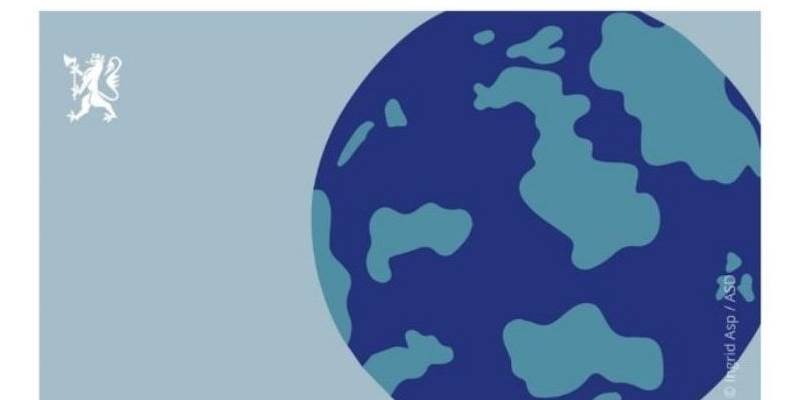The Government is now providing civil society organisations with NOK 4.3 billion to support their work in poor countries. This is the largest overall amount ever allocated to civil society organisations.
‘This year all aid efforts are being affected by Covid-19. The pandemic has highlighted the fact that when a crisis hits, inequality increases. It is therefore more important than ever to ensure that assistance reaches the poorest people. It is NGOs that are best placed to do this. They have people on the ground, they know where help is most urgently needed and they are able to deliver assistance quickly,’ said Minister of International Development Dag-Inge Ulstein.
‘Poor countries, especially in sub-Saharan Africa, are now facing huge challenges in virtually all sectors. The health crisis is bad enough, but the social, economic and political consequences of the Covid-19 pandemic may prove to be even worse. Norwegian NGOs and their local partners in developing countries can play a key role in providing assistance to those who need it most. These organisations also have a key role to play in achieving the SDGs,’ Mr Ulstein said.
The agreements that have now been signed are intended to strengthen civil society in developing countries and its ability and capacity to promote development at the national level. The agreements last for up to five years.
All Norway’s humanitarian efforts are guided by the Sustainable Development Goals (SDGs) and the principle that no one should be left behind.
The Ministry of Foreign Affairs and Norad (the Norwegian Agency for Development Cooperation) have already taken steps to give NGOs greater flexibility during the coronavirus crisis. The Government has strengthened its humanitarian efforts, and large aid organisations such as Norwegian Church Aid and Norwegian People’s Aid have been awarded record-high funding agreements.
‘I am pleased that we are now increasing our support for these organisations despite the crisis,’ Mr Ulstein said.
In the last few years, the authorities in a number of countries have introduced restrictions that have made it more difficult for civil society organisations to carry out their work, and freedom of association and expression are under threat as a result. Norway has therefore given priority to partnerships with Norwegian organisations that have strong local networks and partner organisations.
‘Many countries have imposed further restrictions in recent weeks, and there is reason to be concerned that these may become permanent. Support for civil society organisations is therefore vital for strengthening democratic processes and institutions and thus also human rights,’ Mr Ulstein said.
Some 35 grant applications were received, and agreements have now been signed with 12 organisations. A total of NOK 3.31 billion has been allocated, to be disbursed over a period of three to five years under the civil society budget item. In assessing the applications, Norad has considered applicants’ local knowledge, expertise, financial management, cost-efficiency, value added and results achieved.
‘Administering aid funds that are to be used to alleviate the situation of the world’s poorest is a huge responsibility. That is why we have awarded funding to applicants whose work is of a consistently high standard and that have a proven record of delivering results. Weaker applicants have been phased out or have had their funding reduced,’ said Norad’s Director General Bård Vegar Solhjell.
In this year’s application round, Norad has made several adjustments for civil society organisations to put them in a better position to provide assistance in developing countries that have been affected by the Covid-19 pandemic.
The following were given priority in this year’s application round:
- Projects to promote the achievement of the Sustainable Development Goals, including the commitment to leave no one behind.
- Projects to promote the realisation of human rights, including girls’ and women’s rights, rights to sexual and reproductive health, and efforts to combat harmful practices.
- Projects to strengthen the rights of vulnerable groups, including people with disabilities and LGBTI people.
- Projects to promote good governance, transparency and democratic participation.
- Efforts to strengthen civil society, in line with Norad’s principles for support to civil society organisations, including the partnership model where resources and influence are transferred to local partner organisations.
- Education projects: funding is to be maintained at a high level, in line with previously earmarked allocations of NOK 450 million per year.
Norwegian civil society organisations that have been granted funding:
Organisation: Adina Foundation
Total grant amount: NOK 3 250 000
Agreement period: 5 years
Organisation: Atlas Alliance
Total grant amount: NOK 354 750 000
Agreement period: 5 years
Organisation: Care Norway
Total grant amount: NOK 403 602 945
Agreement period: 5 years
Organisation: CapaCare
Total grant amount: NOK 7 200 000
Agreement period: 4 years
Organisation: Royal Norwegian Society for Development (Norges Vel)
Total grant amount: NOK 67 320 000
Agreement period: 4 years
Organisation: Norwegian People’s Aid
Total grant amount: NOK 974 800 000
Agreement period: 5 years
Organisation: Norwegian Refugee Council
Total grant amount: NOK 186 300 000
Agreement period: 3 years
Organisation: KFUK-KFUM Global
Total grant amount: NOK 35 200 000
Agreement period: 4 years
Organisation: Norwegian Church Aid
Total grant amount: NOK 1 747 295 220
Agreement period: 5 years
Organisation: Plan International Norway
Total grant amount: NOK 246 400 000
Agreement period: 5 years
Organisation: Right To Play
Total grant amount: NOK 182 825 389
Agreement period: 5 years
Organisation: SOS Children’s Villages Norway
Total grant amount: NOK 97 250 000
Agreement period: 5 years
